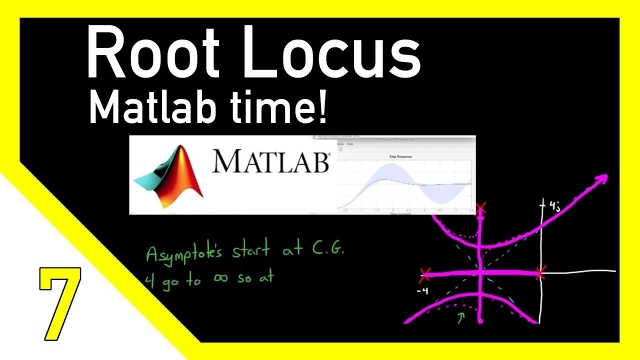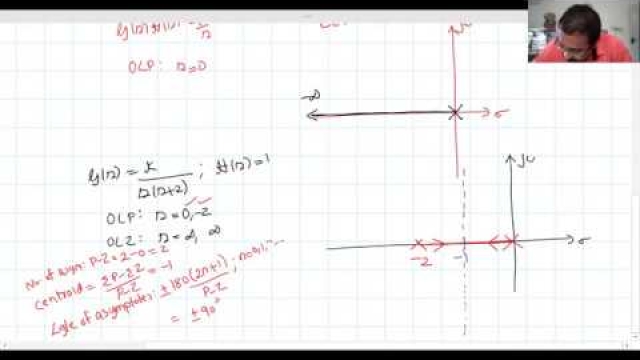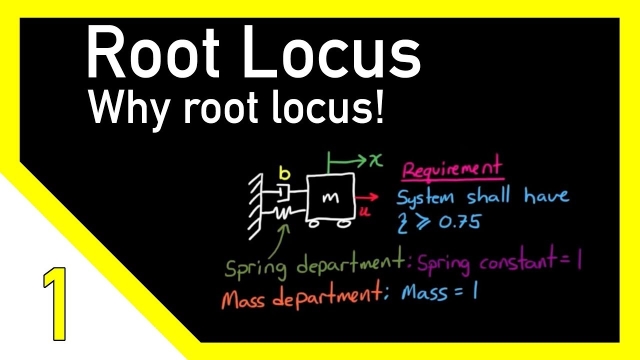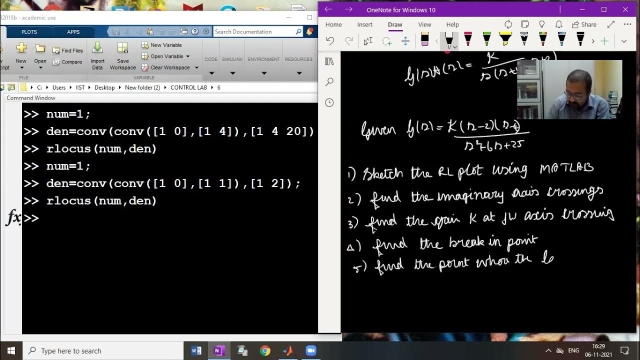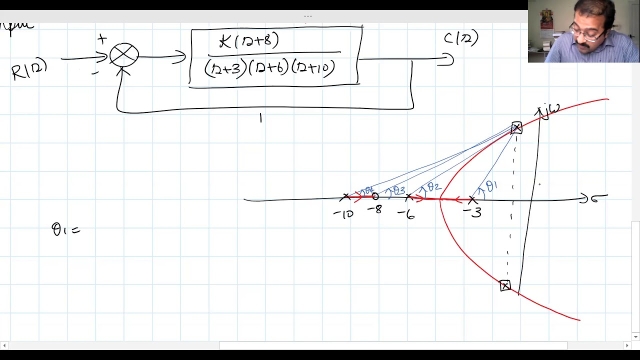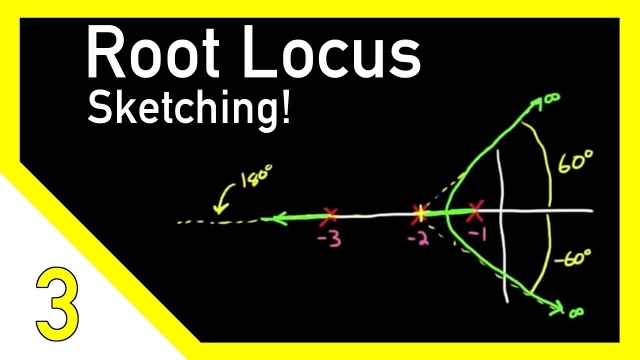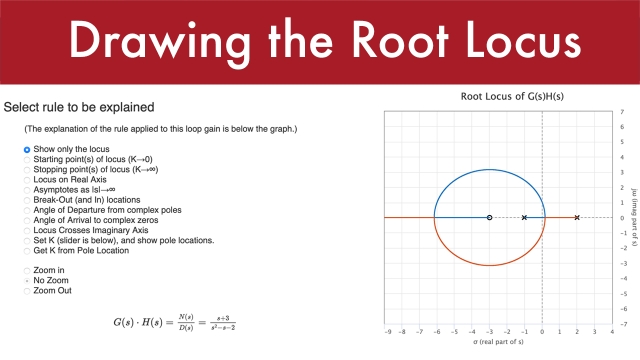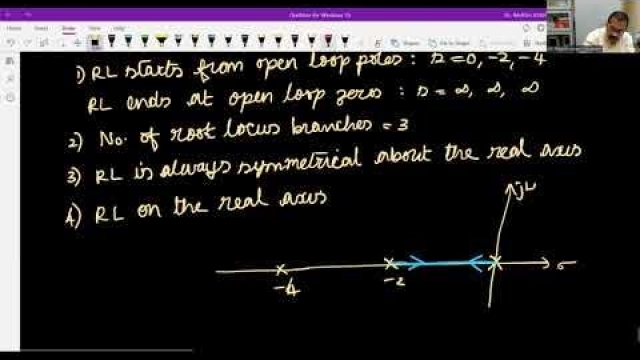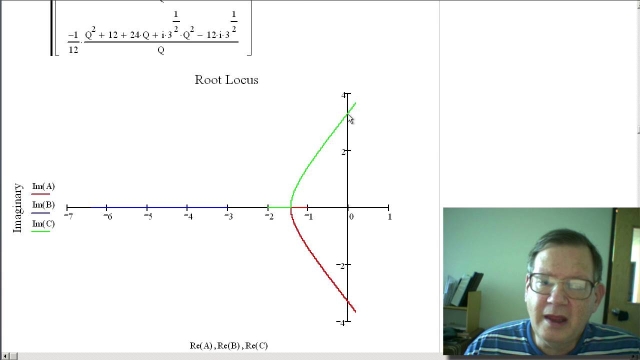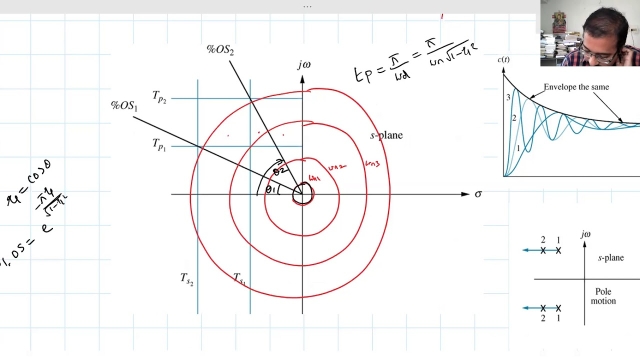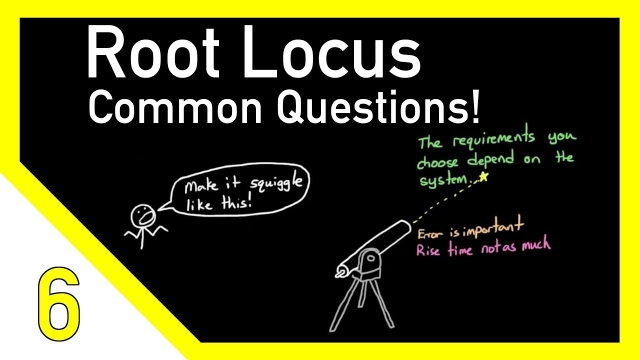In control theory and stability theory, root locus analysis is a graphical method for examining how the roots of a system change with variation of a certain system parameter, commonly a gain within a feedback system. This is a technique used as a stability criterion in the field of classical control theory developed by Walter R. Evans which can determine stability of the system. The root locus plots the poles of the closed loop transfer function in the complex s-plane as a function of a gain parameter.
Topic
Root Locus Analysis
This topic includes the following resources and journeys:
Type
Experience
Scope
Gain a better understanding of Root Locus Plots using Matlab
In this video I go through various ways to use Matlab to plot and visualize the root locus.
See MoreLecture 15: Root Locus
Designing a PID Controller Using the Root Locus Method
In this video we discuss how to use the root locus method to design a PID controller. In addition to discussing the theory, we look at Matlab tools to enabl...
See MoreLecture 16: More on Root Locus and Gain Compensation
Into Stability: Walter R Evans and the Story of Root Locus
In the aftermath of World War II, engineers faced challenges their slide rules couldn’t solve. Walter R. Evans wasn’t looking to change the world—he just wanted to help engineers see clearly...
See MoreThe Root Locus Method - Introduction
This Root Locus method is a fantastic way of visualizing how the poles of a system move through the S-plane when a single system parameter is varied from 0 to infinity. I show how to...
See MoreControl Systems with MATLAB - Root Locus
Lecture 20: PID and Lag-Lead Compensator Design using Root Locus
Sketching Root Locus Part 2
This is the second part of how to sketch a root locus by hand. However instead of following the normal rules for sketching a locus that you'd see in a book, I decided to explain the rules...
See MoreDrawing the root locus (Interactive Tool)
This page was developed to help student learn how to sketch the root locus by hand. You can enter a numerator and denominator for G(s)H(s) (i.e., the loop gain) and the program will guide...
See MoreUsing Root Locus to Meet Performance Requirements
In this video we investigate how to use the root locus technique to design a controller that meets certain performance specifications.Topics and timestamps:(...
See MoreTutorial on Root Locus
Sketching Root Locus Part 1
Sketching a root locus by hand can be done by following some simple rules. However, more important than actually being able to sketch to plot is being able to use our knowledge to design...
See MorePeter Ponders PID - Root Locus Is Useless
Understanding and Sketching the Root Locus
In this video we discuss how to sketch the root locus for a system by developing a series of 5 core rules augmented by 5 supplemental rules (for a total of 1...
See MoreLecture 19: Lead and PD compensator Design using Root Locus
Root Locus Plot: Common Questions and Answers
In this video I go through some of the common questions I've received on my other root locus videos. 1) Why do we call the poles of a system the roots?2) How do I plot the damping ratio...
See MoreUsing ‘rlocus’ in Matlab to Plot the Root Locus
This tutorial illustrates how to use the ‘rlocus’ command in Matlab to quickly and easily sketch the root locus.Discussion on the 3 example transfer function...
See More
